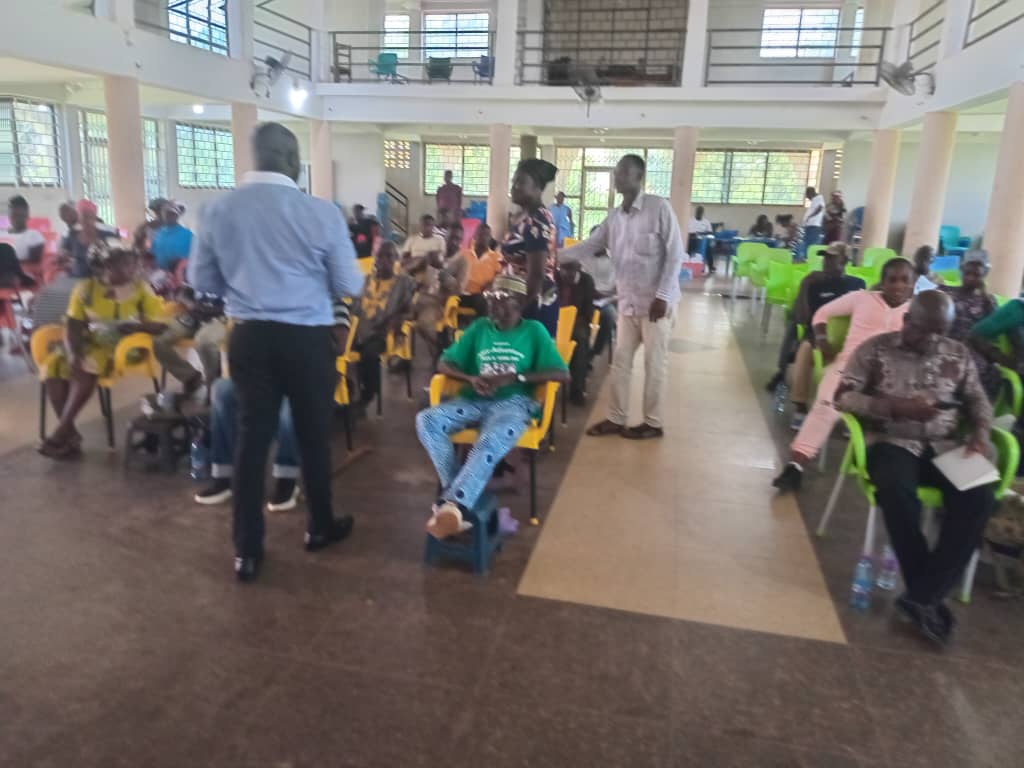
In a bold step towards demanding accountability and justice, over 66 residents from 12 mining communities across the country gathered for a public forum to tackle the devastating impacts of irresponsible mining, seeking to amplify their voices and demand a better future for their communities.
The participants came from mining-affected areas in Ashanti, Ahafo, Eastern, Western and Western North Regions, including Kunsu, Kontomire, Atewa East and West, Awaso, Tutuka, Terchire, Damso, Dorma Kantinka, and Kenyase.
While sharing some experiences, which included challenges such as strange diseases, skin rashes, food insecurity, among others, they urged the government to stop the wanton dissipation of the environment by mining companies in their communities.
On strategies, they said, capacity building on communities’ rights, negotiation skills, restoration of degraded lands, and diversification of livelihoods alternatives were crucial in their struggle to stop irresponsible mining.
The Atewa communities shared the establishment of CREMA, empowering communities to hold duty bearers accountable, establishment and enforcement of community laws against mining, restoration of degraded lands, and community mobilisation for action to support CSO interventions.
The forum, held at the auditorium of the Presbyterian Church, Kenyase in the Asutifi North District, Ahafo Region, on Tuesday, May 14, 2024, was organised by Wacam, a not-for-profit organisation, in collaboration with A Rocha Ghana and Nature and Development Foundation (NDF).
It was part of activities that heralded the launch of a European Union (EU) funded Building Resilient and Active Communities in Extractive Landscapes in Ghana (BRACE) Project.
The BRACE project, a three-year initiative with an amount of EUR 1.7 million from the EU, aims to foster resilience and create active, empowered communities within the extractive landscapes in Ghana.
The project is being implemented by A Rocha Ghana in partnership with NDF and Wacam in mining landscapes in the Eastern, Ashanti, Western, Western North, and Ahafo Regions.
Welcoming the participants, the Associate Executive Director of Wacam, Mrs. Hannah Owusu-Koranteng, emphasised that mining communities should be open to sharing their experiences and strategies so others could also learn.
She contended that mining should bring about development and not devastation of communities’ livelihoods. However, she lamented that in most cases mining impacted negatively on communities’ access to clean air, water, sustainable agricultural lands, sacred groves, and the protection of forests.
The awareness creation was to empower communities to be able to advocate their rights. The exchange is therefore necessary to help build the confidence of communities when dealing with mining challenges in the various communities,” the Associate Executive Director of Wacam pointed out.
 A Rocha Ghana National Director, Dr Seth Appiah-Kubi, in his remarks encouraged communities that the extraction of resources did not mean the destruction of their environment.
A Rocha Ghana National Director, Dr Seth Appiah-Kubi, in his remarks encouraged communities that the extraction of resources did not mean the destruction of their environment.
According to him, the protection of community livelihoods was paramount, adding that if natural resources extraction undermines community rights, communities needed to have their capacities built to defend those rights.
The narrative of in the interest of the country with respect to resources extraction should not impact negatively on community livelihoods,” he noted.
He was upbeat that the exchange would enhance community knowledge and strategies for protecting communities’ rights and livelihoods.
The Executive Director of Wacam, Daniel Owusu Koranteng, on his part, shared the history of Wacam’s establishment and how they have supported communities to be able to negotiate for better benefits from mining companies.
The participants also visited Damso and Dormaa Katinka all in the Asutifi North District where they shared experiences.

